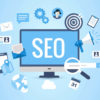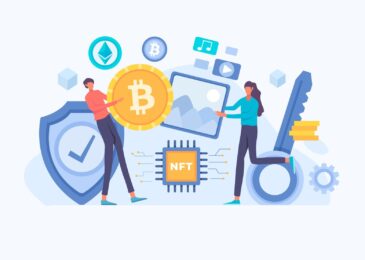How IoT And Mobile Is Driving Business Growth?
How IoT And Mobile Is Driving Business Growth?
While the use of smartphones has dramatically altered the way organizations and doing business, the Internet of Things (IoT) is playing a similar role in enabling new avenues of growth.
IoT is nothing but the technology that allows several devices and electronic gadgets to be interconnected using the internet, enabling seamless communication.
This flexibility will enable users to perform unbelievable actions, like controlling the AC’s temperature using a smartphone or even turning down a thermostat using Amazon Alexa.
These avenues simplify customer experiences and allow enterprises to gain additional insights into customer interactions using these data points. It helps them to create meaningful features and customer engagement that is personalized.
Let’s dig in to understand the impact on IoT and mobile on driving business growth and analyze how hiring a tech team of your own can help build and scale better.
Also Read – What is NB-IoT? Practical Tips to unlock NB-IoT Business Potential
Why is IoT Instrumental in Driving Business Growth?
As per definition, “The internet of things, or IoT, is a system of interrelated computing devices, mechanical and digital machines that are provided with unique identifiers (UIDs) and the ability to transfer data over a network without requiring interaction.”
It has made possible using a variety of web-enabled smart devices that use embedded systems to help store, collect, send, and act on the data. In turn, this makes it easy for people to live and work smarter, as they can gain complete control over the various devices.
According to a Forbes Insights Survey that included 700+ executives in a range of sectors, 84% of executives have confirmed that IoT networks are growing and that they are working on some IoT initiative.
The same survey showcased that 63% of these businesses are already delivering services to consumers using IoT. This growing adoption of IoT and related technologies is going to be the future of the way we interact and work with technology, making it more flexible for consumers.
IoT is not just being used in products and electronics but is actively making its presence felt in the manufacturing, transportation, infrastructure, and home automation industries. The benefits that IoT provides for businesses are:
Monitoring Overall Processes –
IoT allows enterprises and even customers to discover several avenues to get the job done through remote communication, home automation, or mobile app-based communication.
This helps businesses to understand customer preferences while the end-user gets additional avenues to perform a particular task.
Improved Customer Experience –
Customers can discover new experiences and get the avenue to do more using IoT. This allows them to be more efficient and perform actions using several communication streams.
Enhanced Productivity –
IoT enables businesses to get real-time insights into several business areas, day-to-day operations, and assists in monitoring. This is used significantly for real-time supply chain management, asset monitoring, security, and fraud detection.
Ability to Integrate and Adapt to New Technology –
IoT uses automation and analytics to help gain efficiency in monitoring and analysis, while also enabling the use of advanced technologies for the product.
The combination of IoT on devices helps to provide remote updates and create an avenue to be more flexible to adopt new technology.
How is mobile Technology Enabling Growth?
The most popular choice of IoT automation for processes is using a mobile app to enable the user to perform these processes using the mobile. The smartphone, as well as the various home automation tools, enables voice-enabled assistance, remote control of devices, and the ability to track and monitor seamlessly.
The use of IoT, along with mobile technology, is enabling organizations to:
Add Accessibility –
IoT and mobile technology have the same primary focus: to allow added flexibility and convenience. The combination will enable products to interact and perform actions while communicating through mobile from remote locations. e.g., take the example of keeping track of the home when abroad.
IoT-enabled cameras and surveillance systems can use mobile technology to provide a live feed of the house and even create alerts for any movements or unauthorized access. This feature helps to provide remote access or control home environment despite not being away from that location.
Offer Value –
IoT, in combination with mobile technology, allows brands to create additional features that can help build value for the end-user. Smartphone apps or home automation services can create automation and provide data to help users understand user behavior patterns.
This helps to additionally develop solutions that are focused and help enterprises create solutions and products that are crafted for customer needs.
Get More Engagement –
The use of mobile apps to help control IoT-enabled devices helps to get higher engagement. This can help organizations provide a more customized experience with additional channels of engagement.
Better Support –
Mobile technology adds value to customers to seek help and get the right guidance in case of specific issues or procedures. The app helps to generate service requests and gain better insights into customer issues to help provide better services.
Hire Developers to Kickstart your Business Growth –
To harness the power of IoT and mobile development truly, it is essential to have developers who are well-versed in technology. The use of technology coupled with in-depth knowledge of the business process is integral for adopting new technology for driving real value.
Organizations can explore options to hire a mobile developer to create apps, and continually update by providing enhanced user experiences on various mobile platforms.
Besides, IoT experts and other technology that are recent developments require not just traditional technology knowledge but a background in innovative technologies.
Thus, organizations should focus on promoting a culture of learning to ensure their developers learn and grow continuously. Building a great product in today’s world requires expert developers, not freelancers.
Additionally, IoT and other technology require developers well versed in Python. Python is one of the main languages to use when implementing data science routines and algorithms.
Main tech giants such as Google, Dropbox, Mozilla, and many more are using Python as part of their development process. So if you are looking for an expert to join your team, hire python developer who is a perfect match for your projects.
Also Read – Why Should You Invest in Artificial Intelligence (AI) in 2020?





